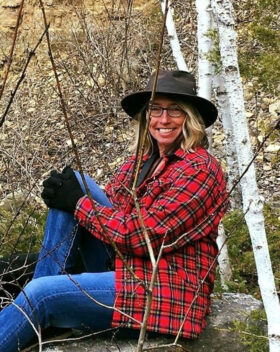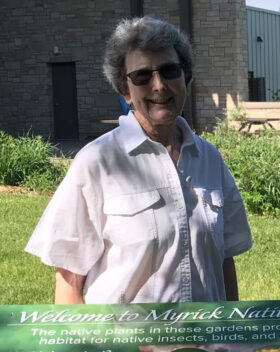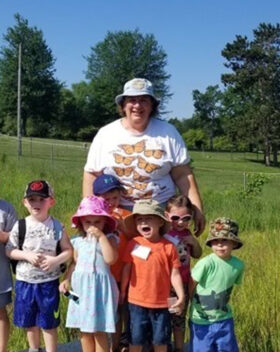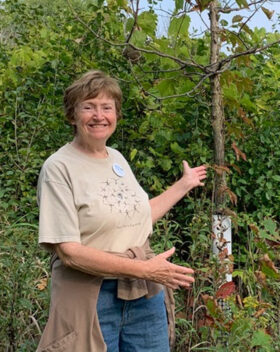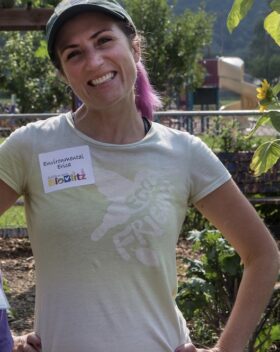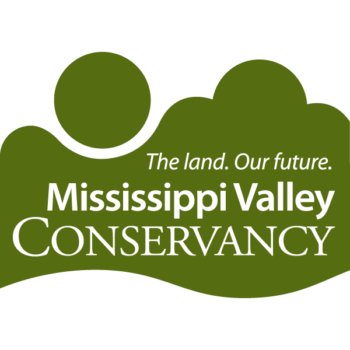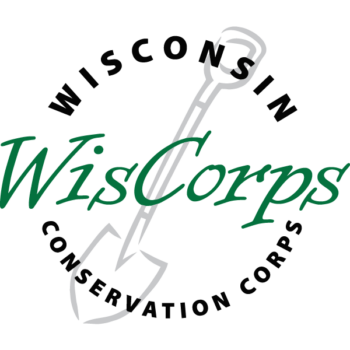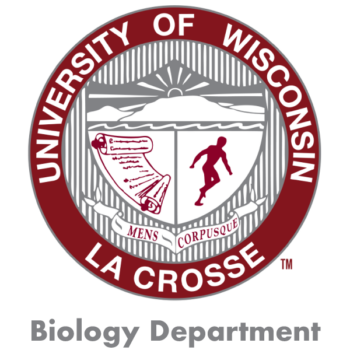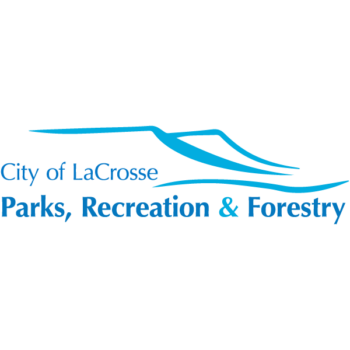For a full list of our 2023 Spotlight on Nature events, go here.

- This event has passed.
Pollinator Plants
August 14, 2022 @ 12:30 pm - 2:00 pm
(See details at the bottom of the page)
Please note: Due to construction on La Crosse Street please take Losey Boulevard and turn onto La Crosse Street going West toward downtown. Myrick Park will be an entrance on the right after the neighborhood.
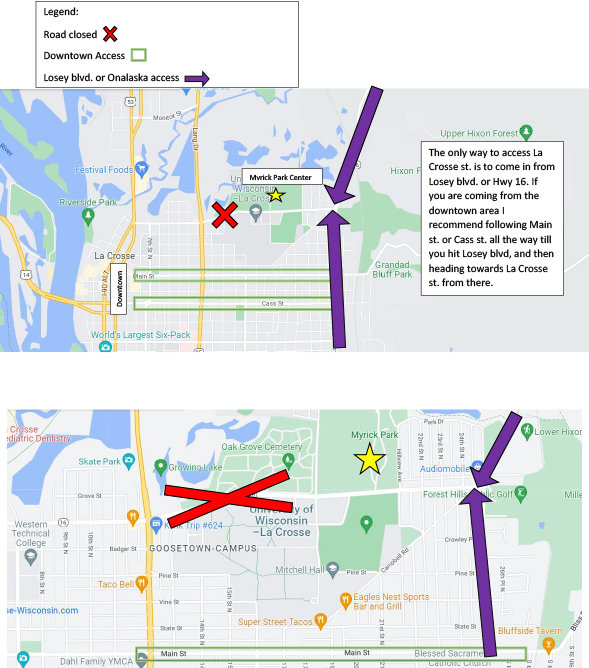
Event focus: Plants
Nectar and/or pollen attracts many types of pollinators, including bees, butterflies, flies, wasps and beetles. The Myrick Native Gardens consist of a rain garden, pollinator garden, areas extending from the patio on the north, a native tall grass area to the west of the building, and a retention basin between the parking lot and the marsh. All the gardens provide habitat for native insects, birds, and other wildlife, with many diverse plants native to the area. Our presenters will give a tour of the gardens and will discuss the value of native plants and pollinators and explore our role in preserving and restoring our natural environment. (If you are interested in volunteering for one of our weekly volunteer days, please go to “Volunteer Wisconsin – Garden with us!“ Other volunteer times can be arranged, and questions can be answered by contacting Veronica Sannes, or by calling 608-782-2494.)
Presenters:
Laurie Arzaga, Wisconsin Master Naturalist & Myrick Gardens Coordinator: Hi, my name is Laurie Arzaga and I am a WI Master Naturalist and long-time volunteer at the Myrick Park Center Native Gardens. In addition to maintaining the Myrick gardens, I also spend lots of time in my own native gardens. Through the years I have eliminated most of my lawn and replaced it with native trees, shrubs and flowering plants. It’s my own little wildlife sanctuary! I also love exploring, photographing and learning about the rare and beautiful ecosystems in the Driftless region.
Betty Kruck, Bluff Country Master Gardener & Myrick Native Gardens Coordinator: My name is Betty Kruck and I have been a Master Gardener volunteer at Myrick Native Gardens since the gardens were started around 2012. My interest in native plants and their relationship to native insects and other wildlife begin about 25 years ago when I lived in the Racine/Kenosha area. After retirement from teaching my husband and I moved south of Genoa in 2001 where we have sought to develop an environment that attracts a variety of wildlife and pollinators. The project at Myrick has been an exciting and challenging opportunity to learn more about native plants, the wildlife they support, and the relationships and dependence of the life that makes up a healthy ecosystem.
Stephanie Hanna, WisCorps Environmental Education Manager: Hello! My name is Stephanie Hanna and I have been an educator in an informal nature setting in the La Crosse Area for 21 years. Before that I was a school teacher. My constant connection to nature ever since I played with and likely ate June bugs in my sandbox at a very young age has helped shape my role as an environmental/nature educator. I enjoy walking and hiking with Astro, my precocious poodle, as well as cycling, yoga, reading, and just being outdoors as much as possible.
Providing additional assistance: Kaitlyn Davis is the Agriculture Extension Educator for La Crosse county with a primary focus in farm management and secondary in horticulture. Her work in horticulture includes working with La Crosse Area Master Gardeners and teaching community gardening courses. Kaitlyn’s work also includes identifying weeds, pests, and assisting with disease management. She has been with the county since January of 2018. For questions about how to get involved with the Master Gardener Program or have a plant question please reach out to Kaitlyn at 608-785-9593 or kaitlyn.davis2@wisc.edu.
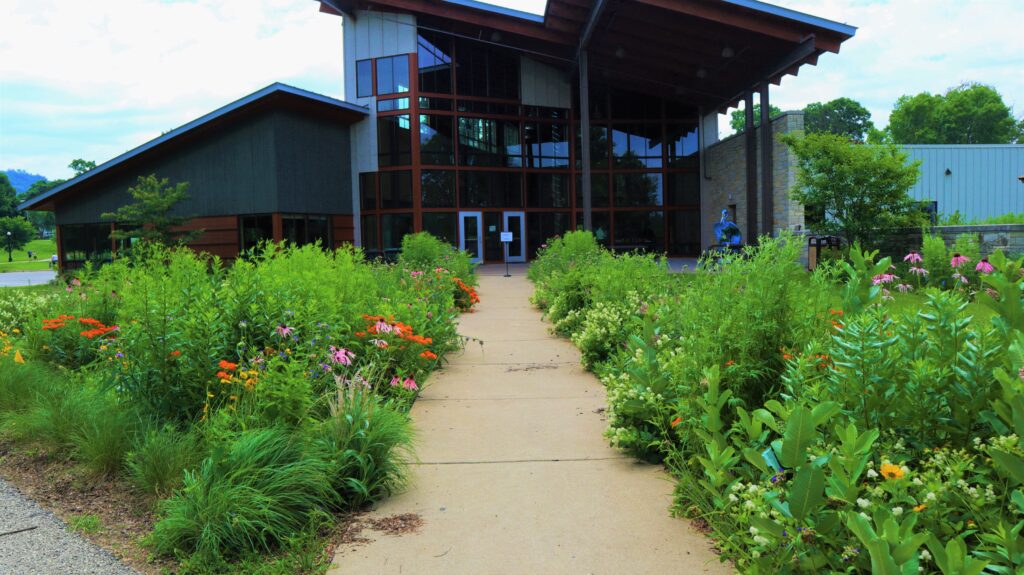
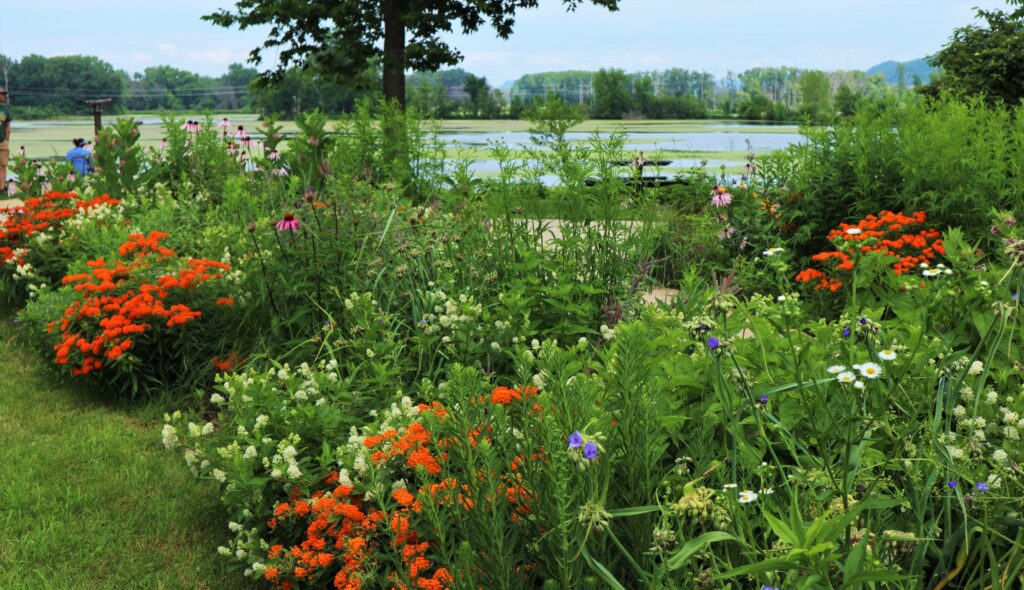
Two of Myrick Native Gardens. Photos by Laurie Arzaga.
Part of the Spotlight on Nature Event Series
The series, part of the Driftless Area BioBlitz 2022 Nature Challenge, is your chance to participate in a bioblitz with experts sharing their passion for and knowledge of the driftless region. There will be eight different events, each focusing on various taxa like fungi, moss and lichens, pollinator plants, birds, and insects, including nocturnal and decomposers.
Please note:
- Registration is not required for this event
- Events are weather-dependent
- We will be following CDC COVID guidelines
Project team
